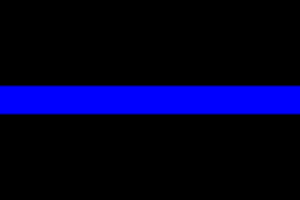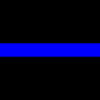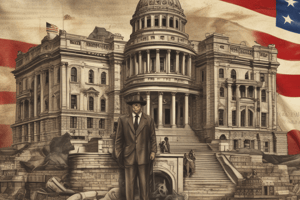Podcast
Questions and Answers
What is law?
What is law?
A form of social control or a method of encouraging people to behave in a certain way.
What are the sources of laws that govern the way we live in the United States?
What are the sources of laws that govern the way we live in the United States?
Constitutional law, statutory law, ordinances, criminal law, case law, and civil law.
What does constitutional law define?
What does constitutional law define?
The form of government Americans have established; it defines our representational government and its three branch structure.
What constitutes constitutional law?
What constitutes constitutional law?
What is statutory law?
What is statutory law?
What does criminal law do?
What does criminal law do?
What must criminal law clearly describe?
What must criminal law clearly describe?
What are statutes enacted by a municipal (city) or county government known as?
What are statutes enacted by a municipal (city) or county government known as?
Some ordinance violations are ________ while others are ________ infractions.
Some ordinance violations are ________ while others are ________ infractions.
_________ pertains to the legal action that a person takes to resolve a private dispute with another person.
_________ pertains to the legal action that a person takes to resolve a private dispute with another person.
__________ is the body of law that allows for the creation of public regulatory agencies.
__________ is the body of law that allows for the creation of public regulatory agencies.
_________ is formed by the decisions of the court system (the judicial branch).
_________ is formed by the decisions of the court system (the judicial branch).
What comprises the first ten amendments to the U.S. Constitution?
What comprises the first ten amendments to the U.S. Constitution?
The ________ Amendment protects the freedom of speech, press, peaceful assembly, and religion.
The ________ Amendment protects the freedom of speech, press, peaceful assembly, and religion.
The ________ Amendment guarantees the right to bear arms.
The ________ Amendment guarantees the right to bear arms.
The ______ Amendment prohibits unreasonable search and seizure and generally requires a warrant signed by an independent magistrate (judge).
The ______ Amendment prohibits unreasonable search and seizure and generally requires a warrant signed by an independent magistrate (judge).
Law enforcement's _______ into homes, vehicles, luggage, purses, or other places is affected by the Fourth Amendment.
Law enforcement's _______ into homes, vehicles, luggage, purses, or other places is affected by the Fourth Amendment.
Law enforcement stops and arrests, including the use of force on persons, are considered _________ and must meet the reasonableness requirement of the 4th Amendment.
Law enforcement stops and arrests, including the use of force on persons, are considered _________ and must meet the reasonableness requirement of the 4th Amendment.
The _______ Amendment is best known for prohibiting compelled self-incrimination.
The _______ Amendment is best known for prohibiting compelled self-incrimination.
The term ________ broadly describes criminal or noncriminal acts that are punishable under Florida law.
The term ________ broadly describes criminal or noncriminal acts that are punishable under Florida law.
A _________ is any crime committed for which the maximum penalty is death or incarceration in a state correctional facility for more than one year.
A _________ is any crime committed for which the maximum penalty is death or incarceration in a state correctional facility for more than one year.
A felony carries a maximum penalty of ______ years in a state correctional facility.
A felony carries a maximum penalty of ______ years in a state correctional facility.
A ________________ felony is punishable by a maximum of ______ years in a state correctional facility.
A ________________ felony is punishable by a maximum of ______ years in a state correctional facility.
A _____-degree felony carries a maximum penalty of _______ years in a state correctional facility.
A _____-degree felony carries a maximum penalty of _______ years in a state correctional facility.
A ____________ is any criminal offense with a maximum incarceration penalty in a county jail of up to one year.
A ____________ is any criminal offense with a maximum incarceration penalty in a county jail of up to one year.
An offense for which the only penalty may be a fine, forfeiture, or other civil penalty is a noncriminal violation, also known as a _____________
An offense for which the only penalty may be a fine, forfeiture, or other civil penalty is a noncriminal violation, also known as a _____________
Flashcards are hidden until you start studying
Study Notes
Law and Its Types
- Law serves as a mechanism for social control, promoting specific behaviors within society.
- Major legal sources in the U.S. include constitutional law, statutory law, ordinances, criminal law, case law, and civil law.
Constitutional Law
- Outlines the structure of the U.S. government and includes three branches: executive, legislative, and judicial.
- Standards stem from the Constitution and interpretations by the U.S. District and Supreme Courts.
Statutory Law
- Created by Congress, state legislatures, and local authorities to address perceived societal needs.
- Encompasses civil laws, criminal laws, administrative laws, and regulatory laws.
- Criminal law specifically addresses unacceptable behaviors and establishes punishments for them.
Ordinances and Their Application
- Local statutes enacted by municipal or county governments are termed ordinances.
- Ordinances control behavior within the jurisdiction of the enacting entity and can result in criminal or civil penalties.
Civil Law
- Governs private disputes between individuals, focusing on compensation rather than criminal prosecution.
Administrative Law
- Establishes regulations and procedures for public regulatory agencies within the legal framework.
Case Law
- Consists of laws formed by court decisions, influencing future legal interpretations and applications.
The Bill of Rights
- The first ten amendments to the U.S. Constitution, known as the Bill of Rights, detail fundamental civil liberties.
Key Amendments
- First Amendment: Guarantees freedom of speech, press, peaceful assembly, and religion.
- Second Amendment: Ensures the right to bear arms.
- Fourth Amendment: Protects against unreasonable searches and requires warrants based on probable cause.
- Fifth Amendment: Prohibits compelled self-incrimination.
Law Enforcement and Rights
- Law enforcement must respect citizens' reasonable expectations of privacy during searches or seizures.
- Stops and arrests by law enforcement are considered seizures and are subject to the Fourth Amendment's reasonableness standard.
Types of Offenses
- An offense is any act punishable under Florida law, encompassing both criminal and noncriminal acts.
- A felony is a serious crime punishable by over one year in prison or death; types include:
- First-Degree Felony: Maximum 30 years imprisonment and $10,000 fine.
- Second-Degree Felony: Maximum 15 years imprisonment and $10,000 fine.
- Third-Degree Felony: Maximum 5 years imprisonment and $5,000 fine.
- A misdemeanor involves offenses with a maximum one-year jail sentence.
- A civil infraction refers to a noncriminal violation, typically resulting in fines or civil penalties without jail time.
Studying That Suits You
Use AI to generate personalized quizzes and flashcards to suit your learning preferences.





